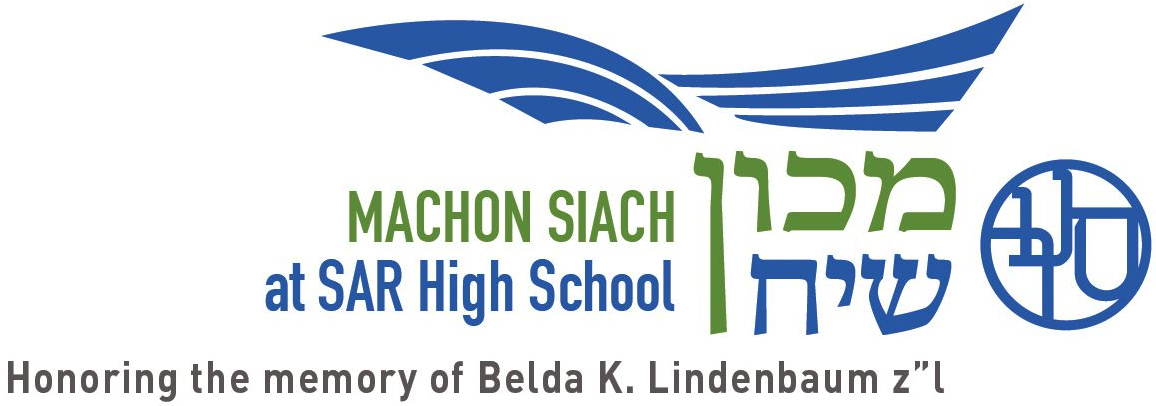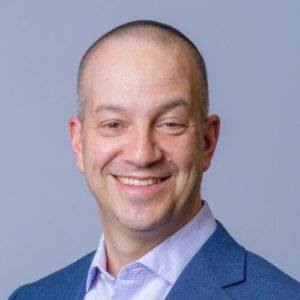
Writing as Professional Development
“Not all that is thought need be said, not all that is said need be written, not all that is written need be published, and not all that is published need be read.” So said Rav Menachem Mendel Morgensztern, the famed Kotzker Rebbe. I remember hearing this quote numerous times during my days in the Beit Midrash. It made an indelible mark on my soul. For me, this aphorism conveyed an expectation of humility, perhaps self-negation even to the point of anonymity, as an ideal. I also internalized a sense of the power, and the potential danger, of the word, whether written or spoken. Carrying that with me well into adulthood, I was frightened by the notion of writing. Through the experience of our Machon Siach work, my perspective has changed. I now strongly advocate for teacher writing across the educational disciplines and on issues that shape school culture.
Machon Siach’s foundational idea is this: many large curricular and cultural questions affect the schooling environment and require our attention, including Israel education, Jewish spirituality, and technology and social media use. But schools are not structured to support teacher research and writing despite the reality that the Yeshiva high school is importantly positioned at the nexus of individual, family and community. I have long believed that schools should provide teachers with opportunities to research, learn together, share their ideas and develop a public discourse around issues in the world of halakhic Jewish education. But we have to overcome the writing hurdle. Most teachers do not write for the public or even for their own colleagues. Most of us do not write at all. This is unfortunate. The high school community is a microcosm of the religious and cultural forces at play in the broader Modern Orthodox community, and teachers should develop professional and communal voices to engage with each other and the community on issues of the day.
To do so, teachers must overcome two obstacles. The first is fear. We are afraid to write and to be read by others. Writing requires a willingness to be vulnerable. For teachers, vulnerability is nothing new; teachers make themselves vulnerable every time they enter the classroom. But writing for fellow adults requires a different sort of vulnerability, and overcoming it will make us stronger educators. We often envision writing as spilling our thoughts onto the page. First we think and then we write. Actually, though, as Heidi Estrem describes it, we write to think. Writing is a creative activity, itself an act of thinking. I have come to agree. Through our few years of experience (and with the encouragement and guidance of our Director of Writing, Dr. Gillian Steinberg) I now see writing as an energizing form of learning, professional development, collegiality and communal leadership. Most importantly, it makes for better classroom teaching.
These days, I invoke E.M. Forster to complement the Kotzker Rebbe. Forster purportedly said, “How can I know what I think until I see what I say?” We don’t fully know our thoughts before we write them out on the page. Our writing prompts new thinking for us, the writers. We learn as we write. For example, I have been teaching Masechet Kiddushin to tenth graders for over a decade. I have clear goals for my class, and I know the arguments, skills and concepts I hope to convey through our learning. Last year, I began to write six-thousand-word essays on some of the units that I teach. In one instance, I focused on the teaching of one Mishnah; in another, it was six lines of Gemara, a smaller unit that is part of the larger sugya. I was surprised to discover that the writing process shed light on certain gaps in my thinking and highlighted spaces where I needed to further clarify or strengthen the explanation of the Gemara’s point or the Tosafot’s question. In the end, I had a product in hand: my own description of what I am trying to achieve and convey in a particular curricular unit. I could now “know what I think” once I could “see what I say.” Not only that, but I could now share my more complete formulation of this sub-sugya with my colleagues for their reflections and feedback, which opens a cycle of collective learning.
This brings us to the second obstacle, defining the genre. I support high standards; our products should be excellent. But by what measure? Most teachers will not publish conventional academic papers, but, extending the work of Lee Shulman of Stanford University, I believe that “pedagogical content writing” is an underdeveloped category of its own. Writing about teaching content, shaping values and building religious meaning and community requires a unique orientational blend of theory and practice. The same sugya of Gemara will be read – and written about – differently as a Rosh Yeshiva, an academic and a classroom teacher. The Rosh Yeshiva and the academic have established discourses and venues for publishing and responding to essays. We must develop the infrastructure to foster teacher writing in Gemara as in all disciplines, and on a wide range of topics that shape education. Teacher writing is an avenue for learning, professional development and communal growth.
At SAR, we have experienced this growth first hand. For the past few years, our Gemara department has encouraged faculty members to write on a sugya that we teach and, through it, we have been developing a shared discourse and orientation to learning and teaching Gemara. We are writing for each other, learning together, accepting comments and critique, and refining our work. Writing is now a site for learning, professional development and collegial connection. In place of my fear of writing, I now look forward to the opportunity to write, although it is not always easy. And I am excited to read the work of my colleagues. I embrace the opportunity to discuss the complexities of teaching a Torah text, figuring out how to make it accessible and meaningful to our students.
Sharing their writing with the community, teachers can also develop a voice of leadership in the community; and the reader might find that learning texts or engaging with issues through the eyes of teachers makes for exciting learning and stronger partnership. At Machon Siach, we will continue to cultivate an environment that supports teacher writing in both shorter editorial and longer essay form. We invite our fellow high schools to join in and develop faculty writing programs. Written discourse and a conversation of our own will make our already excellent schools even better.



